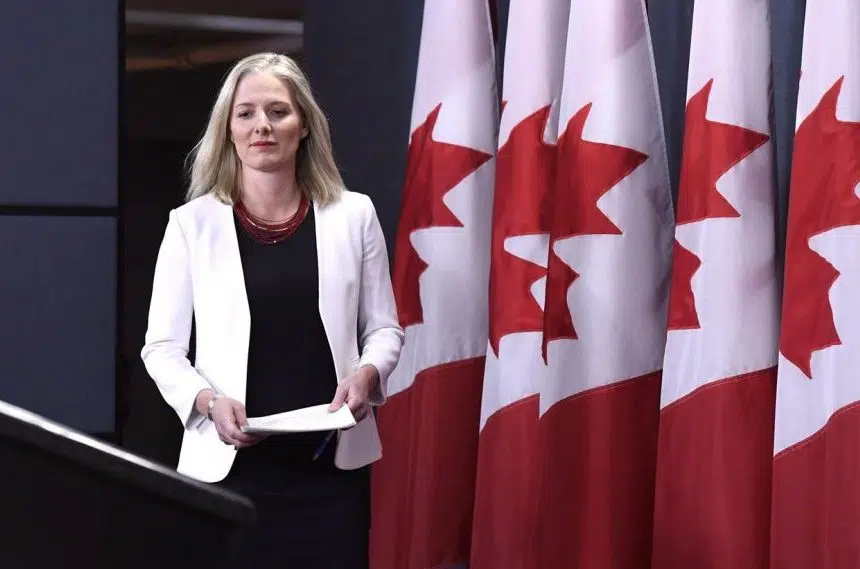OTTAWA — Small businesses in the four provinces with a national carbon price will share $1.4 billion over the next four years to help them reduce their energy use but business-owners say they are getting the short end of the rebate stick.
Environment Minister Catherine McKenna unveiled two carbon-tax rebate programs for small business Thursday morning in Ottawa, nearly two months after the new carbon price began being applied in Ontario, Saskatchewan, Manitoba and New Brunswick.
“It took a while, to be honest, to get the details right,” McKenna said.
She said she wanted to make sure the program will be workable and easy for businesses to use, promising quick turnaround time for a direct rebate program to offset up to half the costs for small businesses to buy more energy efficient equipment or appliances.
It’s expected the rebates will be worth $44 million this year. The maximum rebate for any individual business will be $20,000.
More details on what equipment or retrofits will be eligible for what level of rebate won’t be available until regulations are delivered after the Liberal government’s budget-implementation bill passes in Parliament. McKenna said the idea is to include things like refrigerators, dishwashers and anti-idling devices for vehicles to help everyone from farmers to convenience-store owners and restaurateurs.
“We wanted very practical things that will help small businesses save money,” she said.
A separate program will give rebates for retrofits that make their businesses use less energy. That program, which is to cost about $106 million this year, will be for projects of up to $1 million.
The funds come from the revenues Canada is collecting from the $20-a-tonne carbon price imposed April 1 on the provinces that don’t currently have carbon-pricing systems of their own. Legislation requires all the revenues from the carbon price to be returned to individuals and businesses in provinces where they were collected.
Dan Kelly, the president of the Canadian Federation of Independent Business, said the rebate program is “underwhelming” and doesn’t come close to helping small enterprises cope with the added costs of the carbon price.
“This is basically an income transfer from business to consumers,” said Kelly.
With the rebate program capped at $44 million and the retrofits budget sitting at $106 million, Kelly also wondered what the government is going to do if more businesses apply for the programs than there is money to compensate.
He also says the government is treating businesses like an afterthought.
“It is deeply, deeply unfair,” he said.
Most of the carbon-tax revenues— 90 per cent — are going to individuals through income-tax rebates. Small and medium-sized businesses are sharing seven per cent of the revenues, while three per cent are going to municipalities, hospitals, schools, universities and Indigenous communities. A program for that three-per-cent group hasn’t been announced yet.
The Liberals expect most businesses to be able to pass on their carbon costs to consumers through higher prices for goods and services, which is why the majority of the rebates are going to individuals.
Kelly said a survey of CFIB members showed more than 80 per cent believed they wouldn’t be able to pass on more than one-quarter of the costs and half didn’t think they would be able to raise prices at all.
The Canadian Chamber of Commerce said it had wanted a direct rebate program like the tax rebates given to individuals, so every small business would get something. The program as it stands requires businesses to spend money to get anything.
McKenna said the goal is to provide further incentives to get business to cut emissions by reducing their energy consumption.
Over the next four years, Ottawa anticipates small and medium-sized businesses will be eligible for $1.4 billion in rebates for energy-efficiency upgrades through the two streams.
More than half a million small businesses in Canada are affected by the national carbon price in the four covered provinces.
Mia Rabson, The Canadian Press







